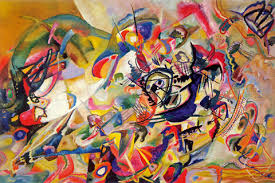In this complex modern age, social systems appear to be increasingly characterised by conflictual dynamics and a limited rationality which leave every dialectic open and unresolved. In such a context, communication – here taken to mean a social process of knowledge sharing – seems to have taken on a strategic central role in every area of the praxis. The hypertrophic growth of the bureaucracy, the progressive dissolution of public space, and the evolution of democracies founded on transparency, access, the concept of popular sovereignty, and, from a cultural point of view, economic individualism – at the expense of democratic individualism – have caused a radical politicisation of the public sphere, whose operating space has been significantly reduced to the single issue of ‘representation’ and to serve the power system. This is the development process of newborn democratic systems, which are often culturally based on the concept of popular sovereignty – taken here to mean the hegemony or predominance of the majority – and on the lack of a definition of the relationship between the founding values of liberty and equality. The public sphere, which expresses itself through political institutions and new social issues seeking public recognition and translation into laws, has continued to formulate itself as an autopoietic system. Given that, and to echo Habermas (1981), the level of mediation between the system and the lifeworld has disappeared, a mediation based on a communicative act capable of critically addressing social issues and opinions produced in the lifeworld and civil society, and thereby fully legitimising them and rendering them publically relevant. The current social systems, as chaotic and disordered as they are, are passing through a further (critical) phase of change, a change marked by the advent of the interconnected economy, which itself raises further questions about citizenship. The objects of discussion are now the new opportunities for emancipation created by the widespread knowledge which fuels the networks of protection and social promotion. The ties of interdependence and interconnectivity are intensifying, even if some observers continue to hypothesize the possible end of the social bond. It’s worth highlighting here the interesting growth of social movements and pressure groups which no longer feel represented by the increasingly distant political sphere, and are therefore taking on the responsibility for making social issues generated from below visible to the Sovereign, and to public opinion. The old industrial model of consolidated structures, hierarchies, control logics and closure to change seems on the point of being broken up by a new knowledge ecosystem. Knowledge is (finally) beginning to be (further) recognised as a common good and a resource capable of (re-) establishing less asymmetrical social relationships. But, and it’s worth reiterating here, the new forms of the social production of knowledge will only become decisive if the actors in the public arena know what to do with the knowledge, the networks, the social media, and, more generally, the technology. And it’s for this reason that the need for a total reform of (complex) thought and knowledge becomes urgent. In any case, we are living in an epoch increasingly marked by the fragmentation of belief systems and systems of belonging – the real producers of individual and collective identities – and by the consequent affirmation of individual and utilitarian values. It’s no coincidence that there has been much debate on ‘the tyranny of the individual’, a full-blown centrifugal force capable of corroding the ties within the social systems and thus testing their resilience. This process of progressive weakening and flaking away finds further confirmation in the widespread deficit of social and political participation, which is itself fuelled by a climate of general mistrust towards all the (formal and informal) institutions that used to be the sole agencies responsible for the transmission of value and knowledge guidance systems. This extremely complex and difficult-to-read scenario, coming in the wake of politics’ loss of credibility and authority, leaves the field open to the possibility of a ‘post party’ democracy, given that the parties are no longer capable of maintaining the consensus and mediating between the new forms of conflict. Forming the background to this is a crisis of the very idea of the party which one can add to the much deeper crisis of representation. The dominant individualism of our social systems is the result – to some degree the inevitable result – of the emancipation process/project that has been brought forward throughout modernity. This process of emancipating first the masses, and then the Subject, has, on the one hand, brought about an increase in areas of freedom and a recognition of certain fundamental rights (at least in theory). On the other hand, it has contributed to the weakening of the ties and sense of belonging to the Community. Paradoxically in an age apparently marked by greater opportunity for emancipation and extraordinary potential for communication – even if, in my opinion, communication and connection are often confused – the triumph of the Subject who is both ‘free of’ and ‘free from’ has determined an unravelling of the social fabric, in that the fabric is made up of people increasingly left alone to face such complexities. The contemporary age is one in which the social mechanisms of trust and cooperation – a supporting structure, along with economic and power relations – have also been sorely tested by the processes of precariousness which have rendered instability an existential condition. In conclusion, the hypothesis of this paper is this: beyond the profound economic crisis (whose roots are far from being exclusively economic!), the phase we are living through is particularly dramatic. People clearly feel the risk of the ‘end of the social bond’, and this perception (both on an individual and collective scale) counts, along with a feeling of being alone in facing the insecurity and precariousness of life. I’d add here that one can also recognise this drama of solitude – which is also a void of sense, a difficulty in giving reality meaning – in the obsessive need to communicate and be ‘visible’ at all costs (old and new media), so as not to be forgotten (a question of identity and recognition). In this complex, uncertain and multifaceted scenario, communication, the means of communication (mass and new media), information systems, the Internet, and, in particular, Web 2.0, appear to have definitively occupied – not to say dominated – the public space of debate and the forming of public opinion, as well as that decisive area of social praxis formerly controlled by the traditional agencies of socialisation. On this subject, it’s of fundamental importance to keep the two levels of discourse and analysis separated: on the one hand, technology and/or the means of communication; on the other hand, the communication itself, which is a social process characterised by the presence of ethical subjectivities and actors/individuals competing from more or less symmetrical positions of power.
P.S. If you’re interested, my fifth book (I’m translating it in English)
– PEER REVIEWED BOOK http://bit.ly/1psrL48



